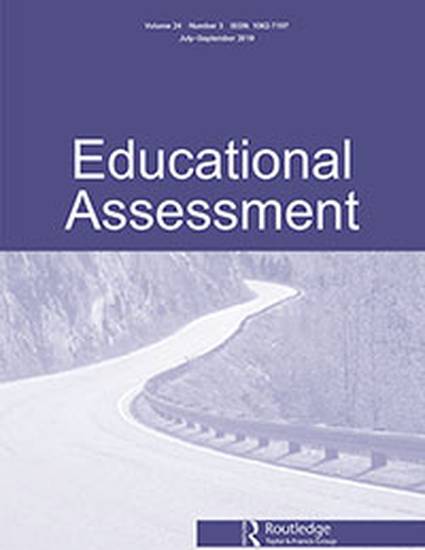
Article
A Generalized Scoring Process to Measure Collaborative Problem Solving in Online Environments
Educational Assessment
(2019)
Abstract
Recent educational and psychological research has highlighted shifting workplace requirements and change required to equip the emerging workforce with skills for the 21st century. The emergence of these highlights the issues, and drives the importance, of new methods of assessment. This study addresses some of the issues by describing a scoring process for measuring collaborative problem solving (CPS) in online environments. The method presented, from conceptualization to implementation, centers on its generalizable application, presenting a systematic process of identifying, coding, and scoring behavior patterns in log stream data generated from assessments. Item Response Theory was used to investigate the psychometric properties of behavior patterns. The goal of this study was to present an approach that informs new measurement practices in relation to sociocognitive latent traits and their processes. The generalized scoring process provides an efficient approach to develop measures of social and cognitive skills in online environments.
Keywords
- Cooperation,
- Problem Solving,
- Scoring,
- 21st Century Skills,
- Computer Assisted Testing,
- Student Behavior,
- Item Response Theory,
- Behavior Patterns,
- Early Adolescents
Disciplines
Publication Date
July 3, 2019
DOI
10.1080/10627197.2019.1615372
Citation Information
Claire Scoular and Esther Care. "A Generalized Scoring Process to Measure Collaborative Problem Solving in Online Environments" Educational Assessment Vol. 24 Iss. 3 (2019) p. 213 - 234 ISSN: 1532-6977 Available at: http://works.bepress.com/claire-scoular/34/
